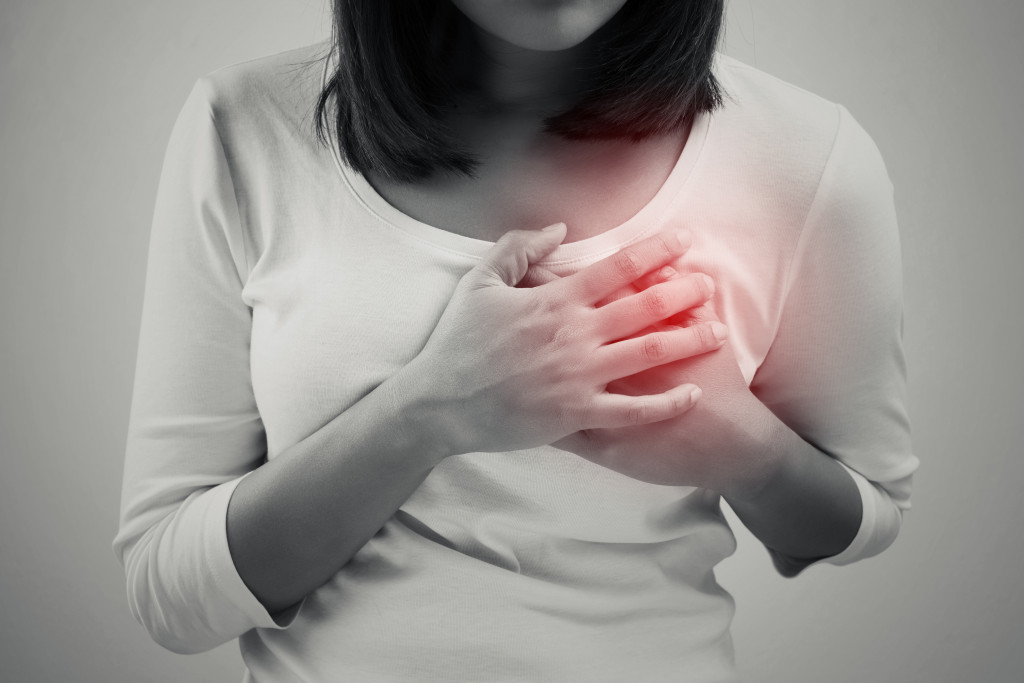The impact of heart attack can be debilitating. It can severely limit a person’s mobility and, therefore, decrease their quality of life.
Some patients who have suffered from it multiple times or significantly need home nursing care 24/7. Nurses can assist them in their daily needs, such as bathing, dressing, and using the restroom. They can also help monitor their health and medications.
Studies have also shown that heart attacks can also contribute to emotional distress that leads to behavioral changes and mental health problems like depression and anxiety. But these can only worsen the risks of having another episode.
Although heart attacks don’t discriminate against anyone, research revealed it manifests and affects differently between genders.
How Heart Attacks Affect Men
According to Harvard Medical School, men are at least twice as likely to suffer from a heart attack than women. The risks remain even after the researchers accounted for other contributing factors, such as body mass index, level of physical activity, blood pressure, and cholesterol.
Males also tend to experience heart attacks earlier than women. The average age of male patients is 65. It’s 72 years old for women.
Why are men more prone to heart attacks? Johns Hopkins medical experts cite at least two reasons: low testosterone and stress.
Studies have found that low testosterone levels increase the risks of coronary artery disease. This affects the vessels’ ability to relax and constrict appropriately.
Stress, meanwhile, can raise a person’s blood pressure and heart rate. Men are also less likely to adapt to stress more effectively than women.
When stress levels are consistently high, they develop into chronic stress, resulting in chronic inflammation. An inflamed body causes damage to the blood vessels, including the heart’s arteries.
How Heart Attacks Affect Women
Heart attacks in women are tricky. Although they also experience the most common symptom, chest pain (angina), the pain level is less noticeable. Some women describe it as tightness or pressure.
They are also more likely to feel symptoms usually not associated with a cardiac event. These include jaw pain, fatigue, and discomfort of the arms or shoulders. Some may even develop a heart attack without chest pain.

The adverse effects of heart attacks are more severe in women. They often have a worse prognosis. In the first year of the episode, the risk of dying is 50 percent in women than men. After six years, the chances of having another attack are twofold compared to males.
Many risk factors can contribute to the increased risk of heart disease in women:
- Lower Estrogen Levels During Menopause: Estrogen is a female sex hormone associated with high-density lipoprotein (HDL) cholesterol or good cholesterol. The hormone level drops during menopause, increasing low-density lipoprotein (LDL) or bad cholesterol. High levels of bad cholesterol are linked to an increased risk of heart disorder.
- Longevity: Females tend to live longer compared to males. As women age, their risks of developing heart disorders and contributing factors such as diabetes, obesity, and hypertension increase.
- Pregnancy: Complications during pregnancy, such as high blood pressure, can increase the risk for heart problems after giving birth. Preeclampsia, or pregnancy-induced hypertension, can damage the arteries and heart valves. It doubles the odds of developing stroke and heart disease within 5 to 15 years after pregnancy.
Gender bias in healthcare can also impact the risks of heart attacks among women. Different types of research revealed that many doctors misdiagnose or dismiss women’s symptoms, missing the opportunity to treat the condition while still early. Women are also more likely to survive an episode when treated by a female than a male physician.
How to Reduce the Chances of Developing Heart Disease
Regardless of how heart attacks manifest or affect men and women, the practical solutions to prevent them are similar for both genders:
- Stop Smoking: Smoking is a leading cause of heart disease. It induces atherosclerosis, narrowing of the arteries, and hypertension, or high blood pressure, significant factors for heart attacks.
- Stay Active: Exercise for at least 30 minutes five times a week to improve physical condition. Healthy lifestyles require more than just physical activity, so take time to eat a balanced diet.
- Take Supplements: Be proactive by taking nutritional supplements to improve heart health. For example, Coenzyme Q10 is an antioxidant produced by the body to increase energy levels and decrease inflammation in the arteries.
- Undergo Annual Exam: Get screened regularly for blood pressure, diabetes, and cholesterol levels. Early detection of any abnormalities can prevent more severe health problems in the future.
Heart attacks can be a severe medical condition. Men and women are equally vulnerable to it, even though various factors affect the manifestation. Prevention is always better than cure. Thus, men and women should take proactive measures to reduce the likelihood of cardiovascular diseases before they occur.

